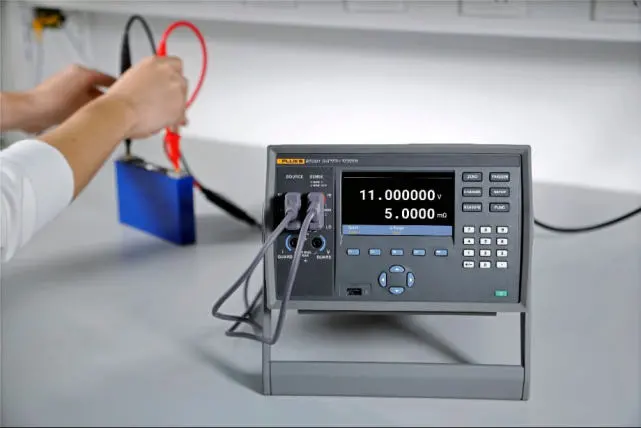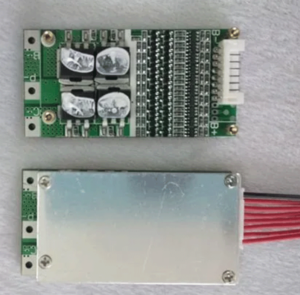1. Lithium battery OCV test
As a kind of battery with high energy density, long life and environmental protection, lithium battery is widely used in mobile communications, electric vehicles, energy storage and other fields. The performance and safety evaluation of lithium batteries is one of the important aspects of their application. Among them, the Open Circuit Voltage (OCV) test is a commonly used method to evaluate the performance of lithium batteries. Let’s learn together the principles, related parameters and applications of lithium battery OCV testing.
2. Lithium battery OCV test principle
1. Definition of OCV
OCV refers to the voltage between the positive and negative electrodes of a lithium battery without an external load. Under normal circumstances, the OCV of a lithium battery is related to its charge state, that is, as the battery charge changes, the OCV will also change accordingly.
2. OCV test principle
The OCV test is performed by disconnecting the lithium battery from the external load, waiting for a period of time to allow the chemical reaction inside the battery to reach equilibrium, and then measuring the open circuit voltage of the battery. During the test process, high-precision voltage measuring instruments are generally used to measure the OCV of the battery.
3. Purpose of OCV test
The main purpose of OCV testing is to evaluate the state of charge, capacity and health of lithium batteries. By measuring the OCV of the battery, you can determine the charge and discharge status of the battery, estimate the remaining capacity of the battery, and detect whether the battery has problems such as failure or aging.

3. Lithium battery OCV test
1. OCV measurement accuracy
OCV measurement accuracy refers to the deviation between the measurement result and the actual value. For OCV testing of lithium batteries, the requirements for measurement accuracy are relatively high, generally below 0.01%. In order to improve the measurement accuracy, it is necessary to use high-precision voltage measuring instruments and control the test environment, such as temperature, humidity, etc.
2. OCV test time
OCV test time refers to the time required to wait for the chemical reaction inside the battery to reach equilibrium after disconnecting the battery from the external load. In general, the OCV test time ranges from minutes to hours, and the specific time depends on the type and capacity of the battery.
3. OCV test temperature
The OCV test temperature refers to the ambient temperature when performing the OCV test. Temperature affects the rate of chemical reactions inside the battery, thereby affecting the OCV measurement results. Generally, the OCV test temperature is normal temperature (20-25℃), and the temperature can also be controlled as needed.
4. Application of lithium battery OCV test
1. Judgment of battery charging and discharging status
The OCV test can be used to determine the charge and discharge status of lithium batteries. When a battery is in a discharged state, its OCV will gradually decrease; when a battery is in a charged state, its OCV will gradually increase. By measuring the OCV of the battery, the charging and discharging status of the battery can be understood, so that the charging and discharging strategy can be reasonably adjusted to extend the service life of the battery.
2. Battery capacity estimation
By measuring the battery’s OCV and combining it with the battery’s discharge curve, the remaining capacity of the battery can be estimated. According to the OCV of the battery and the known discharge curve, the corresponding relationship between the OCV and the capacity of the battery can be established, so that the remaining capacity of the battery can be estimated based on the OCV value.
3. Battery health status detection
OCV testing can be used to check the health of lithium batteries. By measuring the OCV of the battery, you can determine whether the battery has aging, capacity fading or other faults. If the battery’s OCV deviates significantly from the normal range, it indicates that there may be a problem with the battery and requires further testing and repair.
4. Battery performance evaluation
OCV testing is one of the important means to evaluate the performance of lithium batteries. By measuring the battery’s OCV, the battery’s discharge performance, internal resistance, self-discharge rate and other indicators can be evaluated to determine whether the battery’s performance meets the requirements, and perform performance comparison and optimization.
5. Summary
Lithium battery OCV testing is a commonly used method to evaluate the performance of lithium batteries. By measuring the OCV of the battery, you can determine the charge and discharge status of the battery, estimate the remaining capacity of the battery, and detect whether the battery has problems such as failure or aging. At the same time, OCV testing can also be used to evaluate the battery’s discharge performance, internal resistance, self-discharge rate and other indicators. In order to ensure the accuracy and reliability of OCV testing, attention needs to be paid to the control of parameters such as measurement accuracy, test time, and test temperature. Only through scientific and reasonable OCV testing can we better evaluate the performance and safety of lithium batteries and provide reliable basis for the application of lithium batteries.
https://powerxxsolar.com/contact-us/
https://www.linkedin.com/company/solar-power-x/





